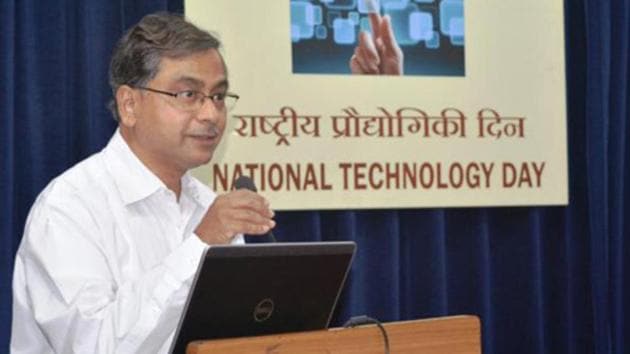Major research projects at Pune’s Agharkar Research Institute in limbo after shortage of funds
KM Paknikar, director, ARI, said that the current situation is due to lack of funds and short-sighted industry outlook.
Piles of promising research projects lay in limbo as 72-year-old Agharkar Research Institute (ARI), is staring at a shortage of funds, mainly coming from industry, this year. The autonomous institute under the department of science and technology (DST) is in this condition despite its illustrious legacy of research in several areas of life sciences, including biodiversity and palaeobiology, bioenergy, genetics and nanobioscience.

KM Paknikar, director, ARI, said that the current situation is due to lack of funds and short-sighted industry outlook. “Whenever you want to introduce a new treatment - like regulatory animal testing, toxicological studies and several regulatory levels of clearances - the process is expensive and so we usually get them outsourced. The entire research hangs by this thread, which requires a lot of external funding. Without the fund, the research process is stalled. Most of our major projects in the institute have not progressed beyond a certain point, especially our work in diabetes, cancer and Alzheimer’s disease, because of this reason,” Paknikar said.
Agharkar Research Institute for the past six years has been working on a number of promising projects, including the introduction of zinc oxide nanoparticles as therapeutic agents for Type I and Type II diabetes, under Nanobioscience. Further, another project using dextran-coated lanthanum strontium-manganese oxide (LSMO) nanoparticles was aiming to find an efficient treatment for cancers by targeted hyperthermia, a condition of elevated body temperature. However, lack of industry investment has stalled this project’s progress too.
“ These high-end researches are expensive and cannot be included in the annual budget allocated by the government to us. We had sent a separate proposal to the government last year, but not much has come out of it,” Paknikar added.
Last year, in the annual budget, ARI received an approximate amount of ₹21 crore out of ₹1,065 crore allocated for assistance to autonomous bodies by DST. This year, the total allocation has gone up to ₹1,102.5 crore, Paknikar said.
“Such high-end products need industry investments but, the issue lies in the mindset of the Indian industries, who wish to sail through, without taking any risks. Most firms in the pharmaceutical sector are used to importing ready-made technology instead of looking inwards and discovering the breakthroughs happening in India,” said Paknikar.
Another project, with the potential of a larger impact and an outreach opportunity for ARI, involves developing a miniature version of a polymerase chain reaction (PCR) device, used in all molecular biology laboratories, so that it can be utilised in schools and colleges for training students. Their team plans to create an affordable on-chip real-time PCR device, which as opposed to the original device worth ₹20 lakh or more, will be available at ₹20,000- ₹25,000. “We are excited about this project, as it was meant to introduce young minds to the world of molecular biology at an early stage. We had reached out to several Indian firms to invest, but the response, till now has been lukewarm. And, without proper funds, like the others, this will also get stuck at a point,” he added.
Silver Lining
“Contrary to these projects, the microbial enhanced oil recovery is funded by Oil and Natural Gas Corporation (ONGC) and could be a success story. “Normally, only 30 to 40% oil is recovered from an oil well and the rest remains locked in the rocks. But, bioenergy group of our institute has developed a microbial process to extract the remaining oil,” said Paknikar. This project which had started in 2012, is likely to complete its trials this year and will be eventually taken over by ONGC.
Another project includes developing a treatment for fungal diseases. “There is an antibiotic in the market called Amphotericin-B, which is the only effective drug for treating fungal diseases, but this has a lot of nefrotoxins which is toxic for kidneys. And, we have developed a new nano-formulation for this drug, which will reduce the toxicity and make it more effective, with lesser side effects. So for this, we are planning to reach out to international industries, as this has a global market. The institute will reach out to the global industries for funds, after the patenting process is completed in the next two months,”Paknikar added.






